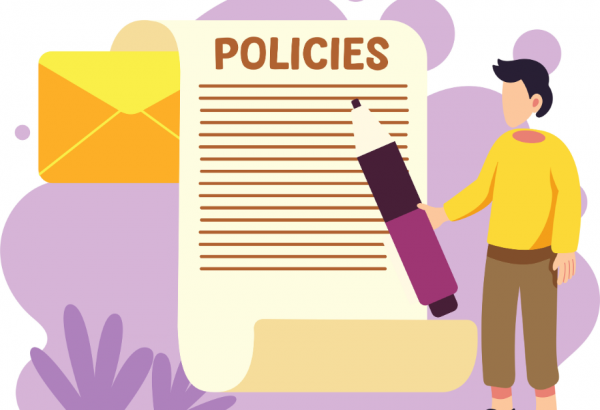5 Common HOA Problems (and What You Can Actually Do About Them)
5 Common HOA Problems (and What You Can Actually Do About Them)
-l.jpg)
You’ve sent the message. But the sidewalk outside your building still hasn’t been repaired, and the streetlight near your driveway keeps flickering at night. Days pass, and it starts to feel like no one’s listening. Around the neighborhood, other residents also begin to wonder who’s responsible and why answers take so long to arrive.
Living in a community association brings structure and shared care for the place you call home, but communication often moves through several layers before action happens. With more than half of American homeowners now part of an HOA, even small misunderstandings can weaken connection.
This guide explores five common challenges in HOA living, explains why they occur, clarifies who’s accountable, and outlines practical steps to make progress.
Problem #1: My HOA Doesn’t Communicate
You send an email, fill out the form, and wait. Weeks later, there’s still no update. It’s hard not to feel ignored when the issue seems obvious and no one replies.
Most communities have defined channels for communication, such as an online portal, a contact email, or scheduled meetings. Delays happen when a message requires board approval, when volunteers are busy, or when a vendor report hasn’t come back yet. Communication works best when requests follow the right path, include enough detail, and allow time for a reply. Tools such as hybrid meetings that invite broader discussion, clearly outlined board responsibilities, and steady collaboration between residents and the manager help everyone stay informed.
What You Can Do
Use the official communication channel so your request’s logged. If you’re unsure how to contact HOA leadership, use the contact email provided by your management company or the resident portal. Write a concise message with the location, photos if needed, and a clear description of the concern. Ask for an estimated update. If you don’t hear back, send a short follow-up or attend the next open forum.

What Your HOA or Management Should Do
You should receive a prompt acknowledgment, a realistic timeframe for updates, and clear explanations if timing changes. Consistent communication shows your request is being handled.
Problem #2: Nothing Ever Gets Fixed on Time
You report a problem and wait for updates that never seem to come. The repair list feels stuck on repeat, and it’s easy to assume no one’s paying attention.
Repairs take time because they rely on coordination. Each request has to be approved, scheduled, and completed by different people, which can slow progress. When details are missing or parts are delayed, the process stalls. That’s why strong vendor management practices and a clear understanding of what the association maintains versus what owners handle make such a difference. They keep work organized and reduce frustration by sending the right requests to the right place.
What You Can Do
Submit a clear written request with the location, photos, and any safety concerns. Ask for a reference or ticket number and the next target date. Combine small, non-urgent items in one request to save time and reduce repeated vendor visits.
What Your HOA or Management Should Do
Expect a timely response with a reference number, estimated schedule, and brief notice if delays occur.

Problem #3: The Rules Feel Unfair or Keep Changing
You check the latest newsletter and see another policy update. Maybe parking limits changed or new paint colors were added to the approved list. It feels sudden and disconnected from resident input.
Boards adopt and amend HOA rules and regulations through procedures in the governing documents. Each change includes notice, discussion, and a vote. Management then applies board policy so standards stay even across all homes. That structure protects fairness and property values. Still, enforcement can seem inconsistent when policies are unclear or handled differently. Consistent documentation and communication prevent that confusion. A clear understanding of board and resident responsibilities clarifies decision-making, and a few conflict-resolution practices help discussions stay calm and productive.
What You Can Do
Read the governing documents to confirm how the rule was created and when it takes effect. If something’s unclear, ask for clarification during the next open forum. When offering feedback, focus on the impact and suggest a practical alternative or short trial period.
What Your HOA or Management Should Do
You should see clear explanations for rule changes, even enforcement across all residents, and advance notice before updates take effect.
Problem #4: Fees Went Up and I Don’t Understand Why
You open the new budget notice and see a higher monthly fee. The increase may not seem large, but it adds up. Without explanation, it can feel like money’s being collected without accountability.
The board reviews expenses such as insurance, utilities, maintenance, and reserves. When costs rise, fees must be adjusted to keep the association stable. Reserve contributions fund major repairs and protect property values by reducing surprise assessments. Thoughtful community management helps balance these needs by forecasting costs, maintaining transparency, and explaining how each decision supports the community’s future.
What You Can Do
Read the budget summary and note the largest cost increases. Ask how reserves are calculated and which expenses are expected to rise next year.
What Your HOA or Management Should Do
Expect a clear budget summary, notice of major cost changes, and a chance to ask questions during meetings or follow-ups.
-l.png)
Problem #5: Neighbor Disputes Over Noise, Pets, or Parking
The barking dog next door keeps you awake, or a car’s always parked too close to your driveway. Small annoyances can build quickly when it seems like no one’s addressing the problem.
Many disputes begin with different interpretations of the same rule. Most HOA rules and regulations cover noise, pets, and parking, but they still rely on cooperation between neighbors. Management can step in when a rule or common area’s involved, yet personal disputes often resolve faster through direct, respectful conversation.
What You Can Do
Approach your neighbor directly with a polite conversation focused on the issue, not the person. If the problem continues, keep a short log of dates and share it with management if a violation exists.
What Your HOA or Management Should Do
You should expect neutral guidance, objective documentation, and communication focused on resolving the concern fairly.
The Power of “We” Over “They”: A Thanksgiving Reflection for Community Associations
The Thanksgiving season reminds us to pause, express appreciation, and look for common ground. In community associations, that perspective can change the tone of even the most difficult conversations. When residents, board members, and managers begin with gratitude and curiosity, discussions about budgets, maintenance, or rules become easier to manage. Understanding replaces frustration, and progress follows more naturally.
Gratitude helps everyone remember that each role supports the same goal: a stronger, well-cared-for community. Using “we” language encourages cooperation and reminds neighbors that they share responsibility for outcomes. A conversation framed around shared effort leads to more listening, calmer decisions, and better results. The Thanksgiving season offers the perfect moment to carry that spirit of patience and appreciation into everyday interactions within the neighborhood.
Create Stronger Communities with Management Plus
Each situation in this guide points to the same lesson: communities thrive when communication feels open and roles stay clear. Every message, repair, and decision shapes how neighbors experience daily life together. Management Plus helps transform those everyday interactions into consistent progress and steady trust.
If your community is ready to strengthen cooperation and bring more understanding to its conversations, contact our team to begin that process with professional support and practical guidance.
